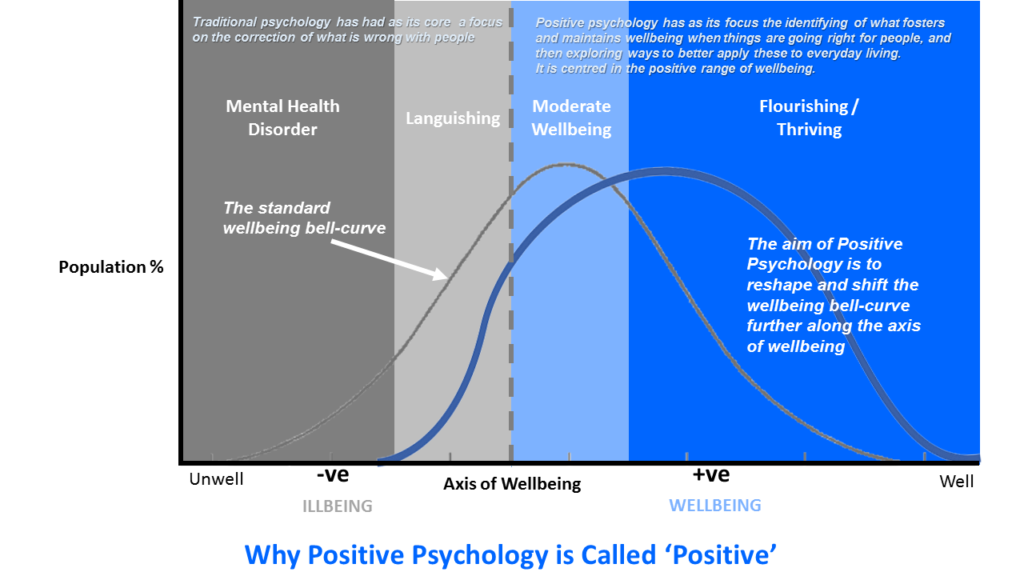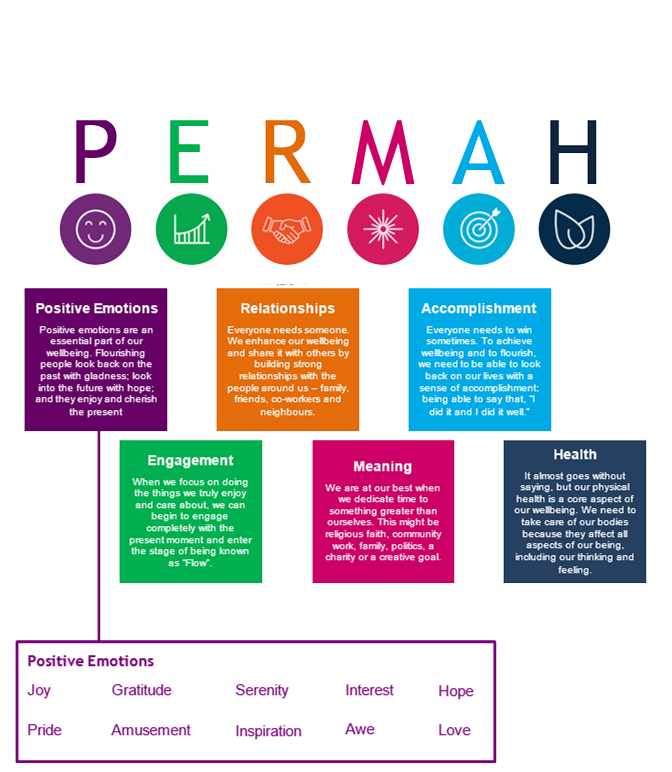Positive Psychology and Faith
By Jon Humphries, Growing in Faith Panel Member
Wellbeing and flourishing, just like faith and discipleship, are words which we all sort of know what they mean, but often find hard to nail down as to what is actually involved. So, here is one way we might use the PERMA model of wellbeing developed by Prof Martin Seligman to help us nurture our wellbeing and to flourish in our faith and discipleship.
Martin Seligman reflected on the fact that an absence of illness does not equate to wellbeing, and so he pioneered research into what helps people to flourish. Seligman sought to learn from those who have high levels of wellbeing so that we might have some principles for all us to enrich and deepen our wellbeing. He called this ‘Positive Psychology,’ not because it is about being positive, but because it focuses on the positive spectrum of wellbeing.

Seligman’sPERMA model of wellbeing and flourishing is easily applicable to Christian faith and discipleship, since much of it is drawn from Christian faith and spirituality. What is very helpful is that it provides scientific evidence for the importance, power and efficacy for much of the Christian life that we sometimes take for granted and are at times, not very intentional in practising.
P in PERMA refers to ‘Positive Emotions.’ Barbara Fredrickson has developed a list of 10 positive emotions. Not only are these the indicators of wellbeing, but focusing on them and practising them helps ‘broaden and build’ our wellbeing. The ten positive emotions are Love, Gratitude, Serenity, Awe, Joy, Interest, Hope, Pride, Inspiration and Amusement. It doesn’t take much to see the obvious link with Christian faith and discipleship for many of these. The key thing is not just to feel them, but to foster the feeling of these through intentional practices.
E in PERMA is about ‘Engagement.’ Mihaly Csikszentmihalyi developed the idea of ‘flow’ being about the sense of engagement when we apply our strengths and skills in a way which challenges us in a positive manner. Knowing and applying our gifts and strengths contributes to our wellbeing, because it generates positive emotions whilst providing a sense of meaning and purpose. We all have gifts and strengths from God, many of which we received from God as Spirit, and there is no gift without its corresponding service or ministry. So, it makes sense that God has created things in a way where when we are living out love in mission and ministry it helps us be well.
R in PERMA has to do with ‘Relationships.’ Quality relationships contribute to our wellbeing when we feel loved, supported and valued by others. Of course for us as people of faith, the love of God is central in our relationships and identity, but the clear message of Scripture, including from Jesus himself, is that we need to be engaged in love of others. When we love others, then we are living in God and God is living in us (1 John 4: 16). So being loved makes us well, just as being love for others does as well.
M in PERMA relates to ‘Meaning.’ This is about serving something greater than ourselves. For us as people of faith, it goes without saying that we serve Christ, who is God for us. We serve through the Way of the Cross, and this gives us a sense of meaning and purpose as we know that living out our discipleship contributes to the Kingdom of God and thus we and our lives have value and are worthwhile. Here is the intentional living of sacrificial love in the service of God and others. Working for justice and practical expression of love for those in need are thus not only important for us to be people of faith, but also for our wellbeing and flourishing. To tap into this we can seek to discern our sense of call. I had the privilege of having a conversation with Martin Seligman himself, and we spoke a lot about the sense of call and how that gives us a sense of meaning and purpose in our lives.
Finally, A in PERMA focuses us on ‘Accomplishment.’ This is the accomplishment of big and gritty goals. The striving for achievement, even though it might be hard, helps us grow and become stronger and healthier. This is a clear principle of faith. We need to exercise faith for it to grow, and there is no bigger or grittier goal than that the Kingdom of God. The work of Angela Duckworth on ‘grit’ shows that perseverance contributes not only to success, but also to our wellbeing. This involves the setting of goals and working with purpose and commitment to the achieving them with conscientiousness and costly effort.
So, whilst the PERMA model comes out of Positive Psychology and might at first seem to have little to do with faith and discipleship, it clearly is a useful tool to help us better live our spirituality and ministry, providing us with evidence-informed strategies and practices which are easily informed by our faith and theology.
In all this it makes sense that the Way of the Cross as we follow Jesus helps us flourish and leads us to life eternal and abundant. What we need to be more intentional about is taking up the practices which help us be well as well as helping others be well as we seek to work with God to build the Kingdom of God.

Jon Humphries is School Chaplain and Religious Education Teacher at Ravenswood in Sydney and a member of the Growing in Faith Panel
